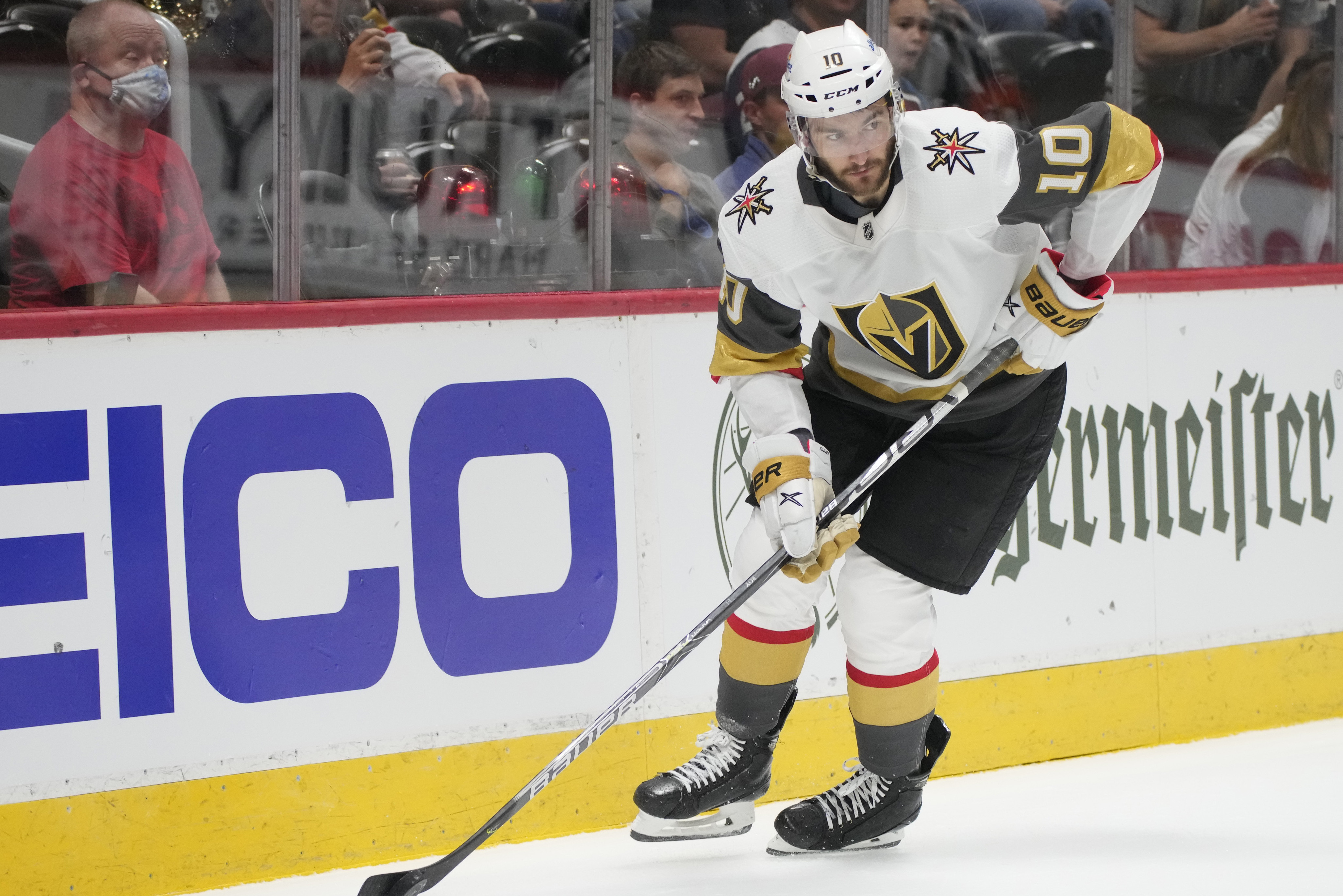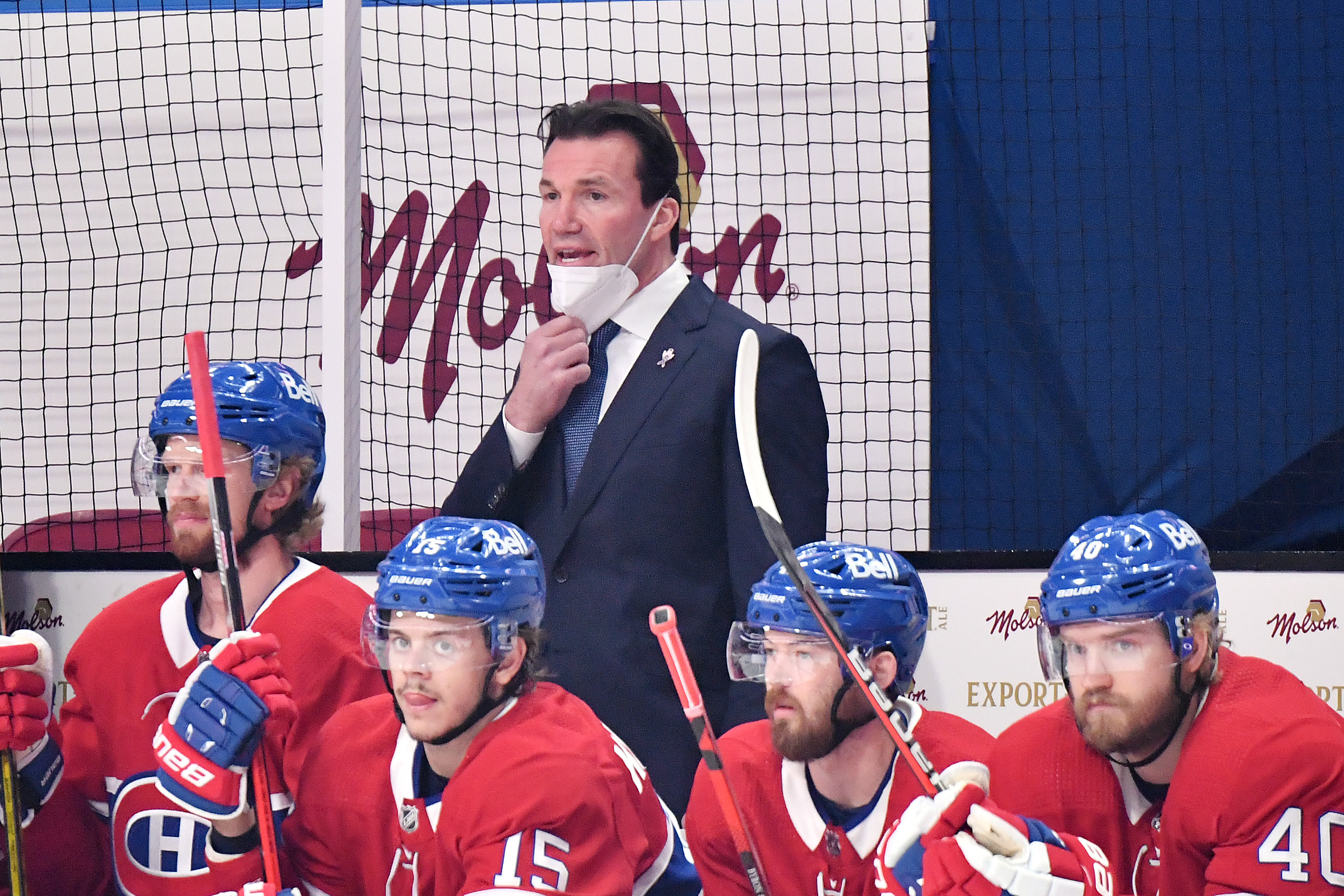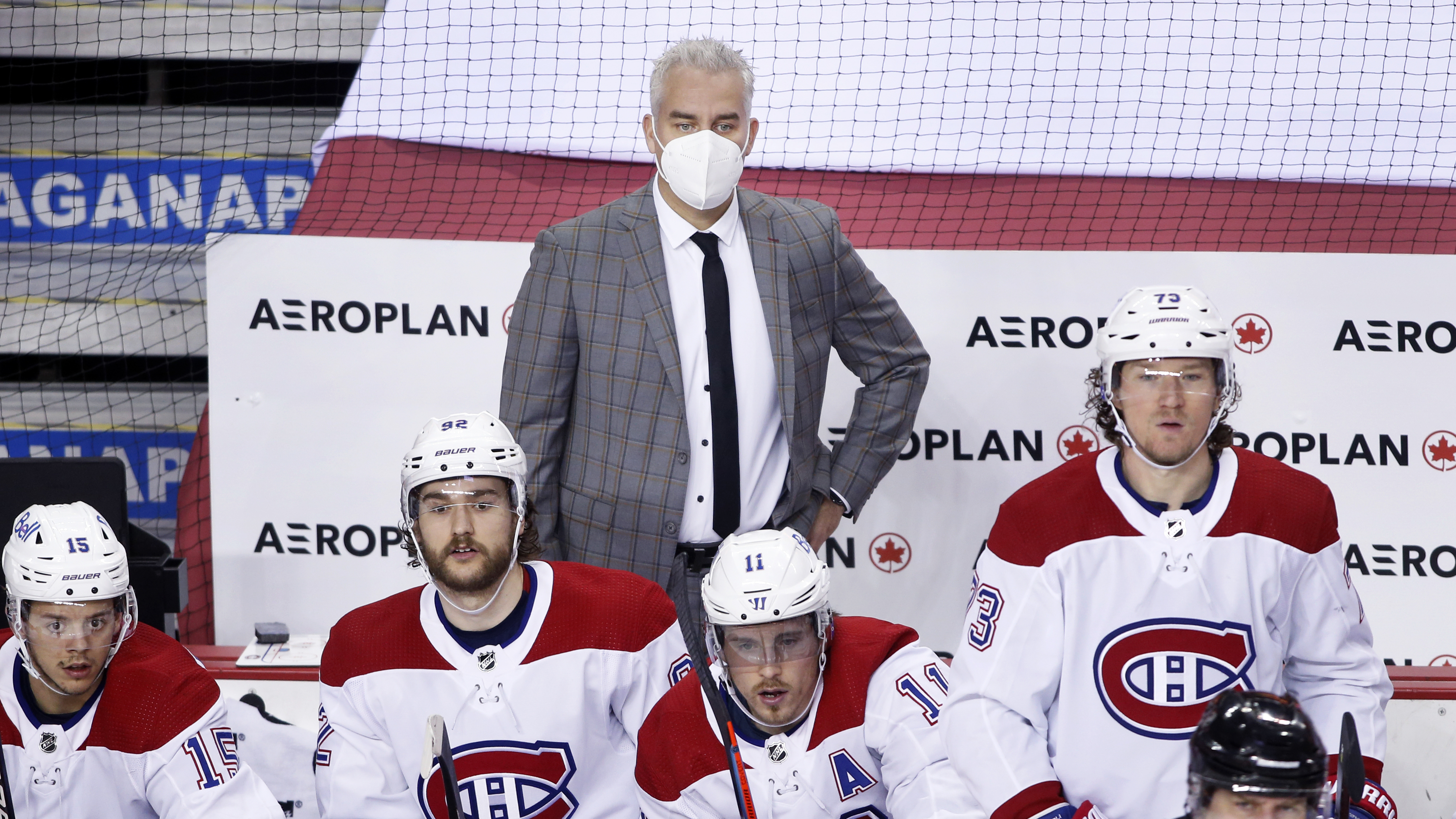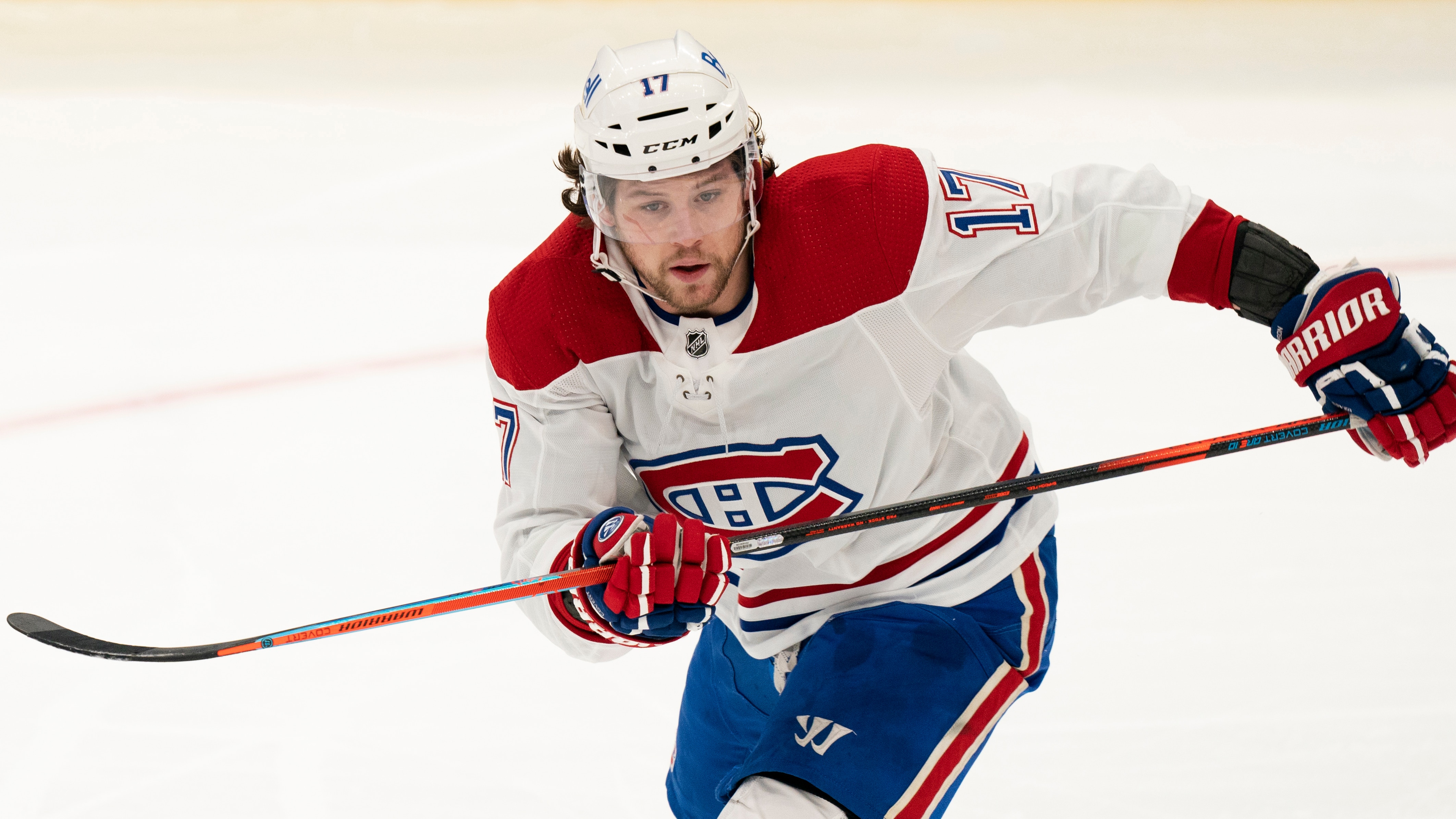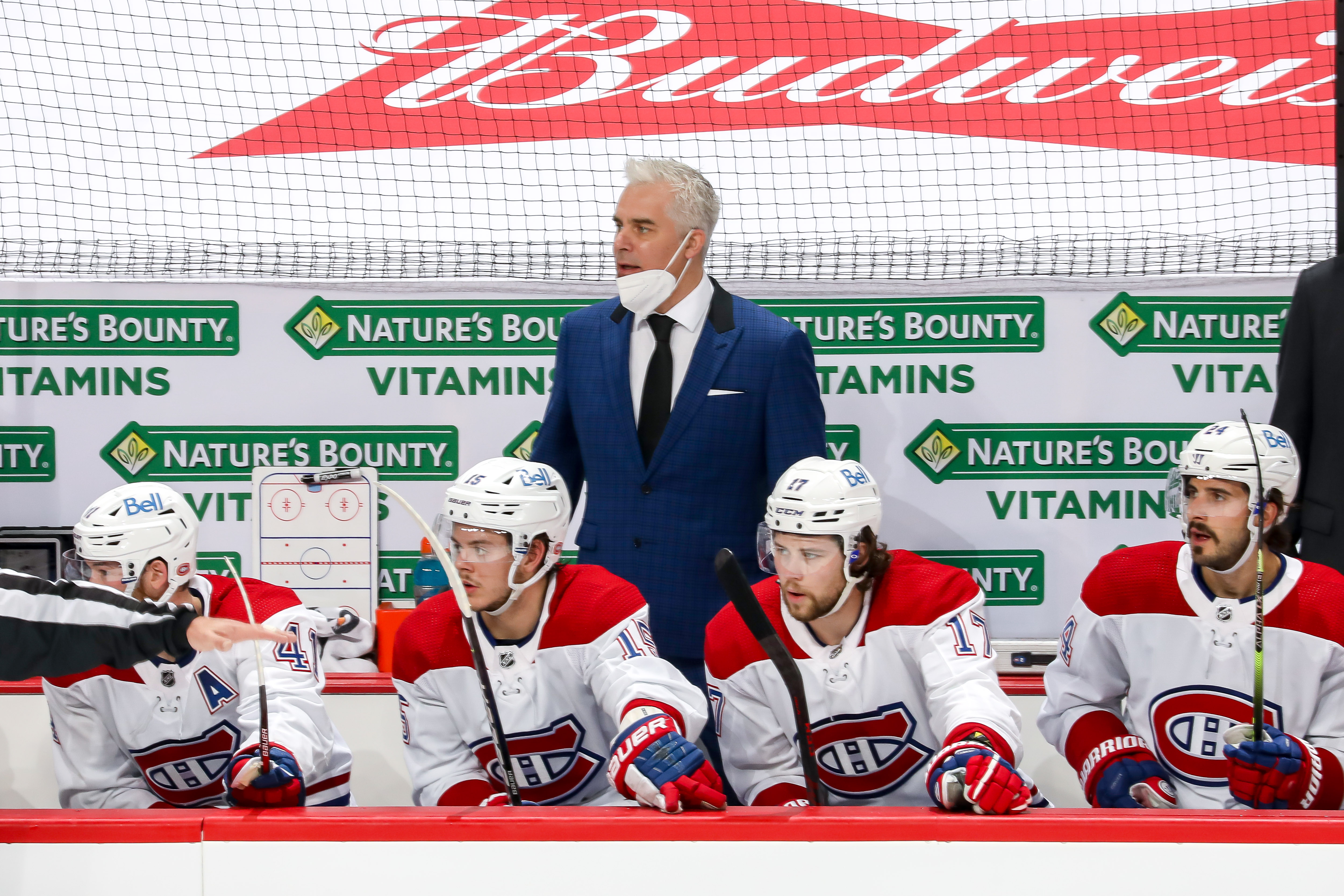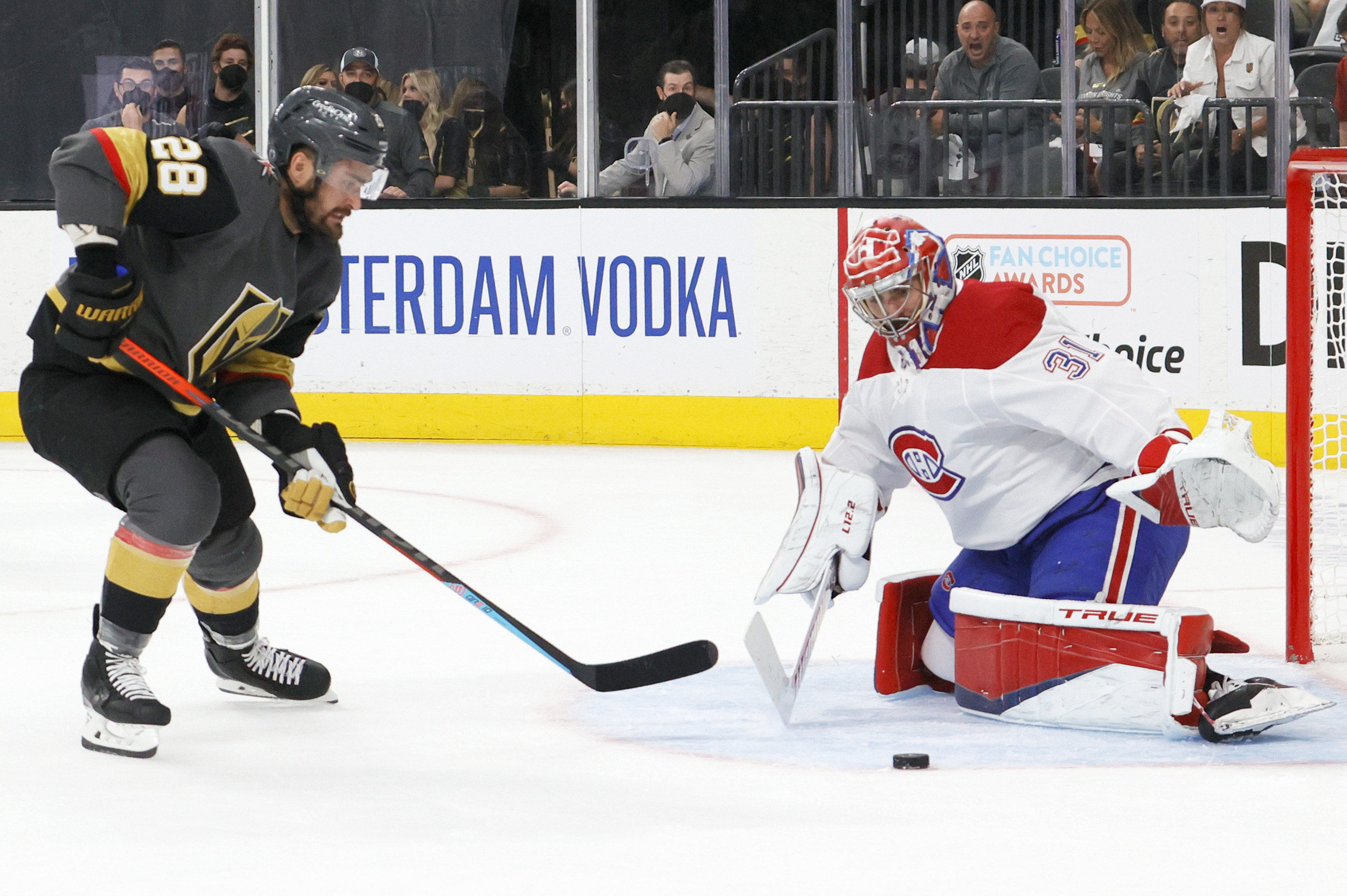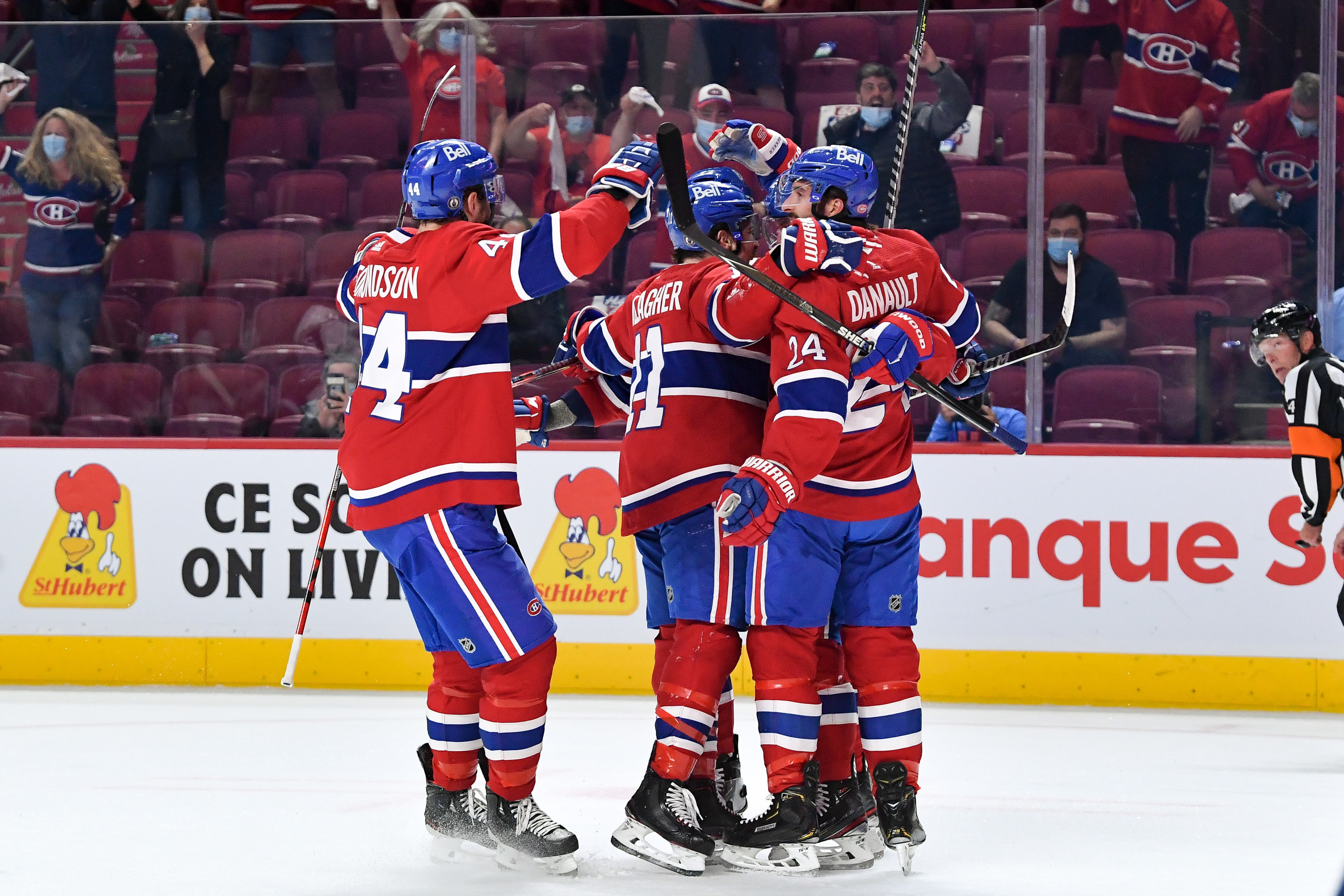Canadiens Continue to Defy Logic on the Road to the Stanley Cup Final

If you had the Montreal Canadiens as your Stanley Cup pick, you're either lying or you're a psychic. And if it's the latter, well, let's talk lottery numbers.
The Habs knocked off the Vegas Golden Knights, one of the heavy favorites to win it all, in overtime of Game 6 of the Stanley Cup Semifinal on Thursday at Bell Centre to reach their first Stanley Cup Final in 28 years. They will face either the New York Islanders or the Tampa Bay Lightning.
At some point, it was unthinkable that a franchise among the most storied in the world would go 28 years without competing in the final round. But much like comparable franchises such as the New York Yankees or the Los Angeles Lakers, the Habs have had a difficult time keeping up with a deeper league and a more modern game.
Over the last decade, Montreal has been among the better teams in the league but not the best. The club has one of the best goalies in the world in Carey Price. But the defense in front of him hasn't been the staunchest, and a solid forward group hasn't had a true game-breaking star.
Yet here the Canadiens are as one of the last two teams standing, the best hope to bring the Cup back to the game's place of origin for the first time in nearly 30 years.
The last Canadian team to win the Stanley Cup was the Habs themselves in 1993, when they defeated the Los Angeles Kings. Kirk Muller scored the winning goal in Game 5 (the same Kirk Muller who was dismissed as an assistant coach along with Montreal head coach Claude Julien earlier this season).
Muller couldn't stay on as the interim head coach because he's not a native French speaker. The Habs are unlike any other team in North America for this very Quebecois reason, but the funny thing is that Luke Richardson isn't a native French speaker either, and he was the coach behind the bench that guided Montreal to victory. Dominique Ducharme, the interim head coach, has been out with a positive COVID-19 test.

What a strange pandemic-tinged season. As if it isn't already weird enough to have teams playing into July, now we have a team that likely wouldn't have even made it to the Final had it not been for realigned divisions necessitated by the coronavirus pandemic and the Canadian border closure.
So, how exactly did the Habs get to the Stanley Cup Final? Can other good-bad teams like them repeat this feat? The answer is yes and also no. Let me try to provide a road map and explain that answer.
The Regular Season
One could reasonably make the argument that the Habs backdoor'd their way into the playoffs by the nature of the division in which they played in 2021. The all-Canadian North Division wasn't exceptionally deep, and Montreal finished fourth behind the Toronto Maple Leafs, Edmonton Oilers and Winnipeg Jets with a 24-21-11 record and a minus-nine goal differential. They fired Julien and Muller after 18 games.
The Canadiens lost five straight to finish the regular season and were expected to be eliminated quickly by the Leafs.
We know what happened next. They won a historic Game 7 against the Leafs, swept the Jets and eliminated the Golden Knights. But is there anything we could have used to predict such an outcome?
Possibly.
The Habs had the second-highest Corsi in the regular season, meaning they controlled the shot share in most games. This isn't entirely surprising since they had a strong forward group and added players like Tyler Toffoli and Josh Anderson as well as defenseman Joel Edmundson in the offseason. They generated 54.78 percent of the scoring-chance share in games and scored on 49.2 percent of those chances.

But Price looked like a different goalie in the regular season. He had a .901 save percentage, and the Habs' combined .901 save percentage was 26th in the league. When Montreal wasn't in the offensive zone, it was a mess.
The Postseason Stars
Price won the 2014-15 Vezina Trophy as well as the Hart as the league's MVP, which shows you in part how important he has been to this team for the last 14 years. So when he started turning in Vezina-like performances this summer, no one was all that surprised. The Habs have a lot of veteran leadership, and it starts with Price, defenseman Jeff Petry and winger Brendan Gallagher, all who have been part of a strong club for years.
But credit general manager Marc Bergevin for a few other moves this winter, including bringing in Toffoli and Corey Perry. Toffoli won the Stanley Cup with Los Angeles in 2014. Los Angeles won three straight Game 7s on the road, including a second-round victory against the Anaheim Ducks and Perry.
The Ducks bought out Perry prior to the 2019-20 season, thinking he had lost his scoring touch and citing a desire to get younger. Perry carried a hefty salary-cap hit with Anaheim and he was not scoring at the same rate. Now, he's an affordable 36-year-old veteran role player, and he's shown that he can still be productive. The forward who was once the league's most notorious pest has nine points in the postseason and had 21 during the regular season.
The 2010-11 Hart Trophy and Maurice "Rocket" Richard Trophy winner will now play in his second straight Cup Final, trying to win his first one since 2007 after playing for the Cup last year with Dallas.
But outside of Price, the kids have made the biggest impact. Cole Caufield, Montreal's first-round pick in 2019, was initially held out of the lineup when the playoffs started, but the Habs are better with him on the ice. Caufield scored the second goal against the Golden Knights and has four in 15 playoff games.

Center Nick Suzuki, Vegas' second-ever draft pick who was part of the trade for Max Pacioretty, has totaled 13 points so far in the postseason.
The biggest star of the playoffs might be the penalty kill. The Canadiens have killed off 93.5 percent of power plays and scored four short-handed goals. Quite a contrast from the regular season, when they were ranked 22nd in penalty-killing.
And those defensive issues from the regular season? Those were remedied in the postseason. Petry and Shea Weber blocked a ton of shots in front of Price and Phillip Danault completely neutralized Vegas' Mark Stone, rendering him pointless in six games.
Luck and Officiating
Every year, the front-office brain trusts analyze how the final two teams left standing got there. They spend an immense amount of time and resources trying to figure out how to emulate the winners, and then they react.
After the Kings won in 2014 with depth up the middle, teams around the league tried to win with dominant centers. When the Pittsburgh Penguins won back-to-back Cups in 2016 and 2017 with speed, teams reacted by bringing in smaller, speedier players and doing away with their big, bruising defensemen. After the St. Louis Blues won in 2019, the bigger guys became trendy again.
Hockey executives would be best served by not reacting or overreacting to this stunning Montreal run. The Canadiens were a mediocre team in the regular season with mediocre special teams that got some surprising performances from key players in the postseason and saw some growth from their young players at the right time.
Luck and officiating even the playing field.
The Canadiens have had a few lucky bounces. Marc-Andre Fleury's misplay in Game 3 comes to mind. And the officiating has been horrendous throughout the postseason. In Game 6, there were several missed cross-checks that should have resulted in penalties.
In Game 6 of Islanders-Lightning series, star winger Nikita Kucherov was injured after a nasty cross-check by New York defenseman Scott Mayfield. No penalty was called. The rationale by the officials given to Tampa Bay captain Steven Stamkos? The refs didn't view it as a "malicious" hit.
A penalty is a penalty with or without malice. It was yet another embarrassing moment involving the officiating in a string of them over the last few seasons. Yet the league never accepts any culpability, and it's unlikely Commissioner Gary Bettman will ever acknowledge the poor officiating and its detrimental effects on the game.
The Canadiens are in the Stanley Cup because they got hot at the right time, overcame every obstacle and a future Hall of Fame goalie played like a Hall of Famer. They also got a few friendly calls along the way.
There isn't anything to really anything to emulate there.
So, the next time you correctly pick a surprise contender like Montreal, come find me. Like I said, I'd like to talk to you about lottery numbers.


